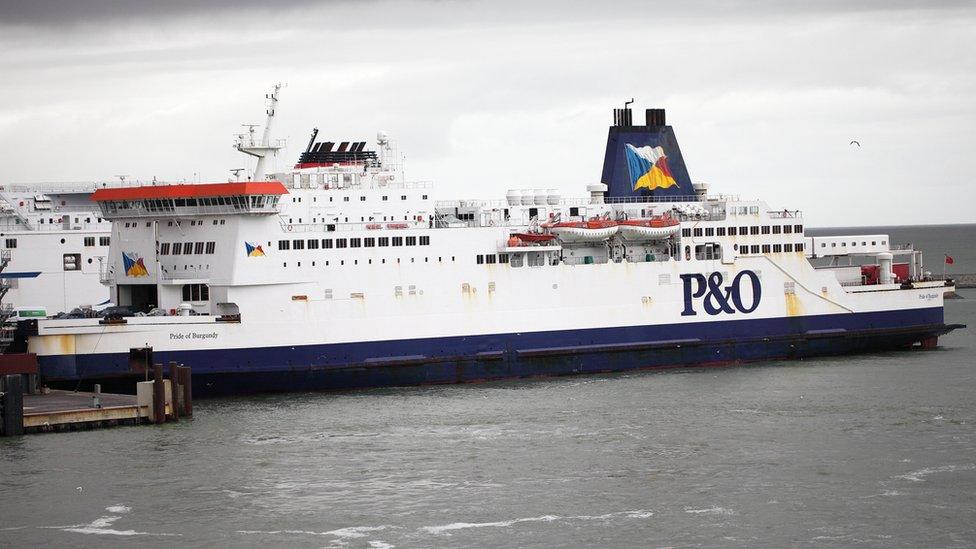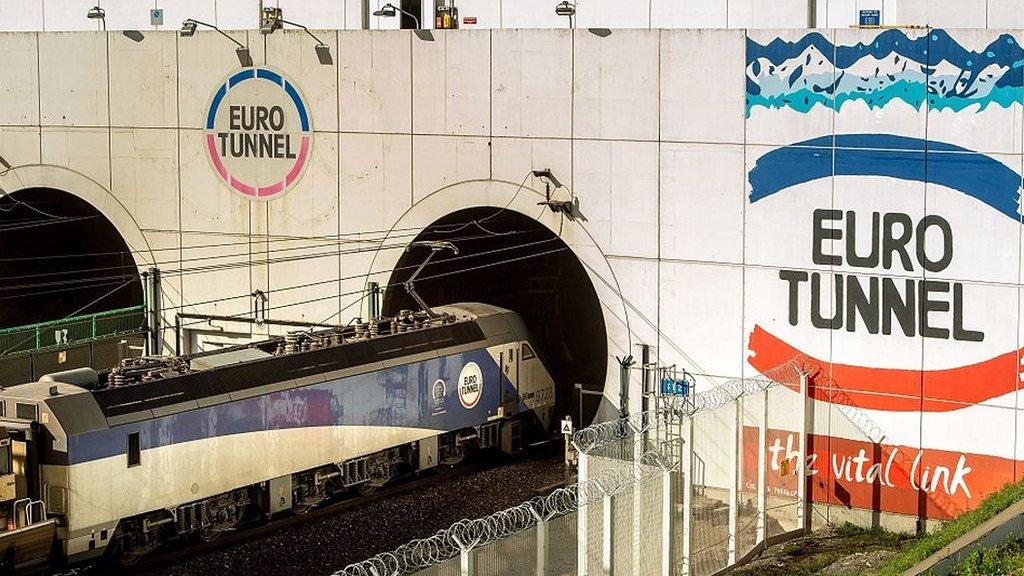Brexit: Government spends £97m on consultants
- Published
- comments

The government says its priorities include ensuring uninterrupted food supplies
Preparing for Brexit has cost the UK government £97m in consultancy fees, the National Audit Office has revealed.
The money has been spent on hiring external experts because government departments lack the staff and skills needed, the NAO said.
It criticised the government for a lack of transparency, saying details of contracts had not been published in a timely fashion.
It also said the bill was higher than disclosed by the Cabinet Office.
According to the Cabinet Office, £65m had been earmarked for consultancy services between April 2018 and April 2019.
But NAO investigations uncovered another £32m worth of spending in the same period.
Many contracts had been extended, particularly in April this year, when the date for the UK's departure from the EU was changed to 31 October.
"Departments continue to prepare for EU exit and total spend on consultancy support will rise," the NAO said.
Specialist skills
Under government guidelines, departments are supposed to publish details of such contracts within 90 days.
But the NAO found it had taken an average of 119 days for basic information about Brexit consultancy contracts to be published.
It added that six consultancy firms had received 96% of Brexit-related work, led by Deloitte, with 22% of the contracts by value.
The others were PA Consulting (19%), PwC (18%), EY (15%), Bain & Company (11%) and Boston Consulting Group (10%).
A government spokesman defended the spending, saying it was "often more cost-efficient to draw upon the advice of external specialists for short-term projects requiring specialist skills".
He added: "These include EU exit priorities such as ensuring the uninterrupted supply of medical products and food to the UK."
A spokeswoman for the Management Consultancies Association said consultants had been "proud to provide expert support to the government with its Brexit preparations during this critical time".
She added: "Departments have faced an unprecedented volume of workload planning for all Brexit scenarios and using external resources has enabled the government to work quickly and with intensity on major programmes across the UK."
- Published28 May 2019

- Published9 May 2019

- Published12 September 2018

- Published19 April 2018
